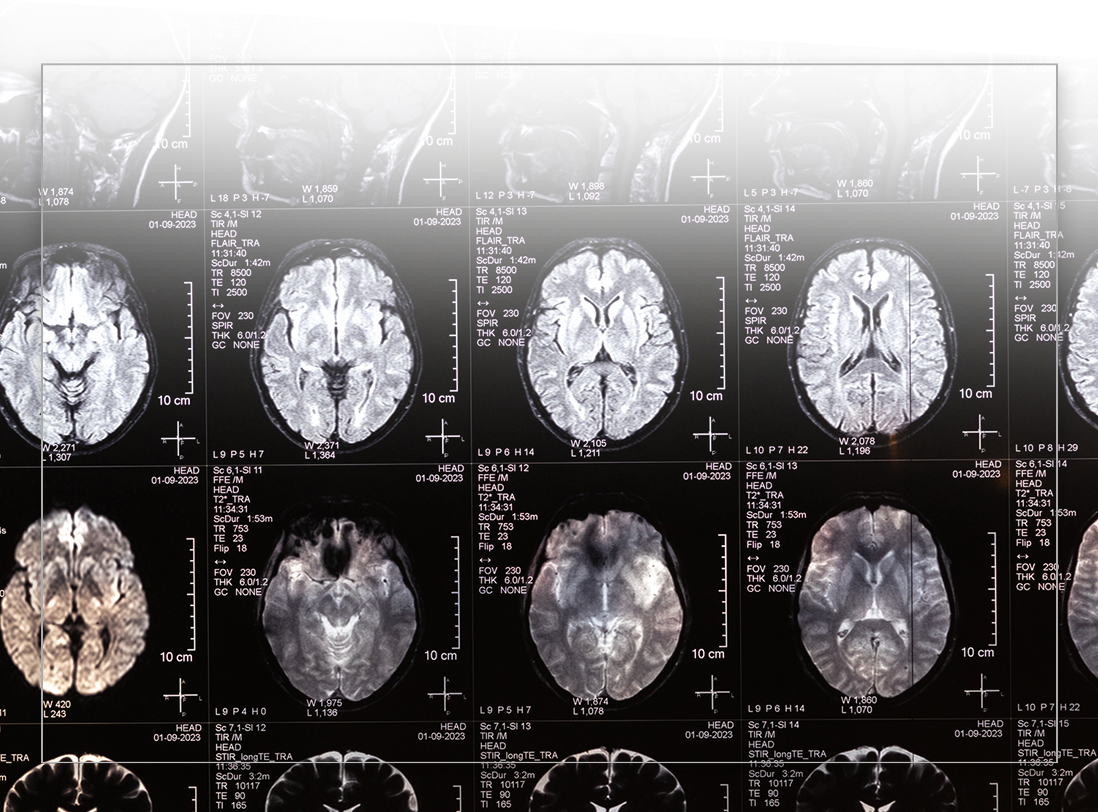

Pasadena Traumatic Brain Injury Lawyer
Page Contents:
- California Brain Injury Attorney
- TBI Statistics
- Rights as a Traumatic Brain Injury Victim
- Symptoms May Take Time To Develop
- Classification & Symptoms Of TBI
- Shaken Baby Syndrome
- TBI Symptoms Should Always Be Treated By A Physician
- Recovering at Home from a Concussion
- Know the Triggers and How to Avoid Them
- Know When to Sleep
- Let the Brain Rest
- Let the Body Rest Too
California Brain Injury Attorney
Traumatic brain injury (TBI) occurs when an external force causes traumatic injury to the brain. Millions of Americans experience a TBI each year. TBI is usually caused by a violent blow, jolt or penetration to the head or body. The Centers for Disease Control (CDC) called TBI the “silent epidemic” because “the complications from TBI, such as changes affecting thinking, sensation, language, or emotions, may not be readily apparent and awareness about TBI among the general public is limited.” With these things in mind, those who suffer a brain injury should seek the assistance of a Pasadena brain injury lawyer. An experienced injury attorney can assist in guiding you through the injury process and ensuring you know what to expect at each stage of the legal process.
TBI Statistics
- Over 1.7 million Americans experience a TBI each year
- 275,000 are hospitalized annually
- TBI is a contributing factor to a third (30.5%) of all injury-related deaths in the United States.
- 52,000 people die from TBI each year
Rights as a Traumatic Brain Injury Victim
If your traumatic brain injury was caused by some other person or organization, you can pursue a claim against that person or organization to recover payment for your losses. You or your Pasadena traumatic brain injury lawyer will need to prove that they did something wrong or careless. You’ll also need to show a direct link between those actions and your injuries.
Liability for causing a TBI can be in the millions of dollars and TBI cases are aggressively litigated in California. Diagnosing a TBI is complex. It requires an evaluation by specialists in several areas of medicine and science (e.g., neurologists, psychologists, radiologists, psychiatrists, neuropsychologists, etc.). Our Pasadena and Los Angeles brain injury lawyers work with the necessary experts to ensure a proper diagnosis.
Whether your traumatic brain injury involved a car accident or motorcycle crash, work accident, sports accident, or a medical procedure caused by error or negligence, or any other cause, we have the experience, team, and process to investigate what happened and determine your legal rights and options. If we take your case, our Pasadena brain injury lawyers work with a skilled team of professionals to help assess both the causes and damages in your case.
If you or a loved one has suffered a head injury due to the negligence of another, you should consult with an experienced attorney as soon as possible. The Law Offices of Scott Glovsky serving Los Angeles and Pasadena has experience handling brain injury cases.
Symptoms May Take Time To Develop
Unlike other injuries, the full impact of a TBI may not be fully known at the time of the accident or even at the time of treatment. Often, symptoms appear days, weeks, even years after an initial diagnosis.
The long-term ramification of the injury may not be immediately known. This may result in additional and costly medical treatment in the future. Victims and their families may have to live with the results of a TBI for years, or even the rest of their lives.
Classification & Symptoms Of TBI
TBIs are classified by severity. Brain injuries can be classified into mild, moderate, and severe categories. There are different techniques or scales used to classify TBI. However, the systems have limited ability to predict outcomes.
Currently, cases of potential TBI are first assessed by conducting a neurological exam, which evaluates thinking, motor function, sensory function, coordination, and reflexes. This exam is then followed by imaging tests such as computerized tomography scans (CT scans) and magnetic resonance imaging (MRI) tests. While these tests do not formally diagnose TBI, they can enable physicians to rule out life-threatening brain injury. Health care providers may also use other FDA-regulated devices when assessing or managing a head injury, but none of these devices is meant to be used in place of an imaging test or judgment of the physician. Timely diagnosis of TBI is critical to prevent repetitive injury–which carries the risk of “second impact syndrome.” If someone who has not recovered from a head injury undergoes a second head injury, it can exacerbate their case of TBI or even lead to death.
Unfortunately, there are still no standalone FDA-approved medical products or procedures that can specifically and formally diagnose TBI. The FDA is therefore continuing its research to find safer, more effective, and more sensitive ways to diagnose TBI. They are working with the research and clinical community to carry out clinical studies that will aid in the development of new medical products. The FDA is also studying TBI biomarkers (measurable, biological indicators of a particular state or condition), and investigating the use of new portable imaging devices to detect mild TBI. Moreover, FDA scientists are conducting research with patients at Walter Reed National Military Medical Center in Bethesda, Maryland, many of whom are victims of TBI.
Brain damage is largely irreversible, according to the National Institute of Neurological Disorders and Stroke, but it is crucial for patients to seek professionals to stabilize their injury and prevent long-term complications that can result from TBI. Until the FDA determines a formal and decisive procedure for detecting TBI, some cases of TBI may go undiagnosed and untreated. We thus advise that, if you have any questions relating to TBI or if you or someone you know is experiencing any signs of mild, moderate, or severe TBI, please consult your healthcare provider as soon as possible.
Symptoms are dependent on numerous factors including the type of TBI (diffuse or focal); the part of the brain that is affected; and the injury’s severity.
Mild TBI symptoms can include: loss of consciousness, headache, vomiting, blurred vision, ringing in the ears, and dizziness. Moderate and severe symptoms may include a headache that does not go away, repeated vomiting or nausea, and loss of coordination. Long-term symptoms may include alexithymia (a deficiency in identifying, understanding, processing, and describing emotions occurs in 60.9% of individuals with TBI); deficits in social judgment; changes inappropriate social behavior; and cognitive changes (especially problems with sustained attention, processing speed, and executive functioning).
Client Stories
- Brain tumor patient goes to trial over insurance provider’s denial of MRI test. The test would have likely identified a tumor in patient’s brain and led to the elimination of excruciating pain and suffering. The case involved insurance bad faith and the denial of critical brain diagnostic tests. Read the story.
- Insurance bad faith lawyer and litigator Scott Glovsky and his client Maria Watanabe were featured in Michael Moore’s movie SiCKO. The Daily Journal wrote an article telling the story of how and why Scott’s client was featured. Read the story.
Shaken Baby Syndrome
Children may share similar symptoms of TBI as adults. However, they generally have trouble communicating and appropriately describing symptoms. Children may manifest TBI symptoms in unique ways such as persistent crying, inability to be consoled, listlessness, refusal to nurse or eat, and irritability. A Coup Injury (aka Contrecoup Injury) is associated with cerebral contusions in which a part of the brain is bruised. This occurs when the moving head hits a stationary object or a moving object hits a stationary head. Contrecoup is also known as the shaken baby syndrome (SBS) and commonly occurs in car accidents when a driver slams on their brakes or gets hit from behind. The long-term effects SBS that result in subdural hematoma, retinal hemorrhage, and cerebral edema can have a devastating long-term effect on a child. You should seek legal representation immediately from a Pasadena brain injury lawyer if your child has been diagnosed with SBS.
TBI Symptoms Should Always Be Treated By A Physician
If you’re seeking compensation for a traumatic brain injury, hiring an experienced Pasadena brain injury lawyer is vital. The Law Offices of Scott Glovsky has been providing Pasadena and Los Angeles residents legal services for over twenty years. We are experienced in dealing with brain injuries. A qualified lawyer with traumatic brain injury law experience is an asset in gaining compensation from those that caused the injury.
Recovering at Home from a Concussion
A child can hit their head at any time while they are climbing trees or playing sports, and adultsmay trip on a sidewalk or while at work. When these accidents happen, there is a good chance a person will sustain a concussion from the resulting impact. Because these accidents can happen anywhere, it is important for everyone to know how to recover at home while they have a concussion.
Know the Triggers and How to Avoid Them
Triggers for concussions are anything that causes symptoms to become worse or produces new ones. Some of the most common symptoms of a concussion are nausea or vomiting, enlarged pupils, unusual behavior, headaches, fatigue, and forgetfulness. If being in a well-lit room increases the severity of someone’s headaches, for example, they should make sure shades are always drawn or that they wear sunglasses—even inside—while recovering from a concussion.
Know When to Sleep
One of the first things a doctor may recommend after a concussion is to keep the injured person awake and not allow them to sleep. However, this is only recommended if symptoms such as dilated pupils, trouble walking, or confusion are present. If none of these symptoms are present, it is not only okay for a person to sleep while recovering from a concussion—it is the ideal thing to do. The body will be better able to recover while a person is sleeping, so sleep can be very important when a person is recovering from a concussion.
Let the Brain Rest
The brain is the part of the body that will be hurt the most after a concussion. After being jostled around inside the skull, there will likely be bruising and perhaps even some bleeding. In order to allow the brain to heal, it is important that the brain is rested while recovering from a concussion. Any tasks that require great focus and thought—such as studying or even reading—should be avoided, and placing too much focus on certain tasks should be avoided if at all possible.
Let the Body Rest Too
In addition to getting more sleep, it is important to let the body get more rest as well. Anything that increases the heart rate, including even just going for a walk, should be avoided until a doctor has said it is okay to resume normal activities again.
Concussions can range from mild to severe, but even mild concussions should be taken very seriously. Regardless of severity, concussions are a type of brain injury, and any time the brain is injured, people should do whatever they can to help their brain and body recover. Following these tips can speed the recovery along and help ensure a concussion does not have any lasting negative effects. If an individual has sustained a concussion or other kind of brain injury as the result of someone else’s negligence, they should speak with a skilled brain injury attorney that could advocate for them.

Meet Our Team
If Results Matter, Then Hire Us

Our Case Results
Relentlessly Tough, Relentlessly Personal
Scott began representing policyholders instead of insurance companies in 1999 and has consistently sought justice for his clients in ways other firms cannot. Scott is passionate about helping policyholders obtain treatments, coverage, and reimbursement from California insurance companies, including Aetna, Anthem Blue Cross, Blue Shield of California, Health Net, Kaiser Permanente UnitedHealthcare, and other companies providing insurance.
-
$17.3 Million
On April 30, 2019, a 39-year-old father was fatally injured when his Kia Optima collided with a disabled Los Angeles County Metropolitan Authority (LACMTA) bus on the I-10 freeway's express lane.
-
$14.9 Million
Cowart v. Anthem Blue Cross, et al. Anthem sued for misleading California individual plan members about the doctors in its networks for its ACA (“Obamacare”) plans in 2014.
-
$10 Million
General areas addressed: health insurance; treatment and procedure coverage; physician recommendations; critical organ, brain, cancer or spinal cord issues; and out of network coverage issues.
-
$9.29 Million
Arce v. Kaiser. Kaiser Permanente sued for denying ABA and speech therapy to children with Autism Spectrum Disorders.
-
$8.5 Million
General areas addressed: health insurance; treatment and procedure coverage; physician recommendations; critical organ, brain, cancer or spinal cord issues; and outside of network coverage issues.






